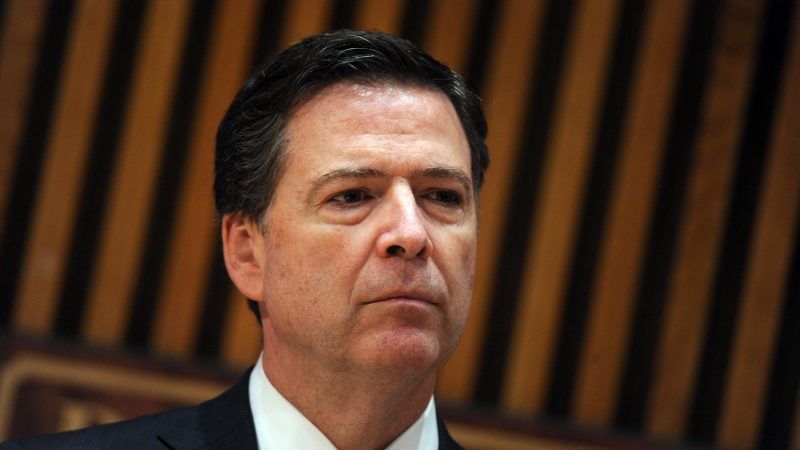James Comey Asked the American People To Trust the FBI. Why Should They?
In an interview with Fox News, the former FBI director admitted mistakes with the FISA process but defended his team.

In an interview with Fox News Sunday's Chris Wallace, former FBI Director James Comey admitted that his agency made "significant mistakes" during the course of its investigation into alleged collusion between Russia and the 2016 Trump campaign. But he defiantly insisted that his critics—including and especially Fox viewers—were wrong to have ever doubted the FBI's motives.
"The American people, especially your viewers, need to realize they were given false information about the FBI," said Comey, referencing an idea promoted by President Donald Trump and his most ardent supporters that the investigation was part of a politically motivated effort to take down the administration.
In response, Wallace asked pointedly, "Would you agree the FISA [Foreign Intelligence Surveillance Act] court was also given false information by the FBI?"
Comey conceded that this was the case.
It was a methodical evisceration of the fired FBI chief, who attempted to downplay his own mistakes and contextualize previous statements he made that no longer hold up in the wake of Inspector General Michael Horowitz's report. Horowitz chronicled the FBI's appalling failures during its handling of the Russia probe, including 17 incidents of "serious performance failures." Wallace raised three key issues with Comey, who tried and failed to explain them away.
First, Wallace pointed out that Comey had previously described the Steele dossier—a key piece of evidence used by the FBI to secure a FISA warrant for Trump campaign advisor Carter Page—as "part of a broader mosaic of facts" against Page. According to the Horowitz report, this was spin on the part of Comey: In fact, the Steele dossier was the fundamental component of the warrant. Comey haggled with Wallace about the definition of "broad mosaic of facts" but was essentially unable to rebut the charge that he had underplayed the dossier's importance after its accuracy came under scrutiny.
Second, Comey expressed ignorance regarding the specific actions of his underlings, in an attempt to claim that he may not have known exactly at what point FBI agents came to doubt the dossier's conclusions. This should be a black mark for him even if it is accurate.
Third, he had no explanation for why or how new information about Page—including that he had reported his contacts with Russians to the CIA—was misrepresented in the warrant.
Comey said these mistakes were unacceptable, and that his previous assertions that the FBI did everything correctly were "overconfident."
"I was wrong," said Comey. However, he maintained that ultimately the report had vindicated the FBI because the more outlandish conspiracy theories of a deep-state-orchestrated coup were not deemed credible.
Hanlon's razor—Never attribute to malice that which can be adequately explained by stupidity—certainly applies here, and that's a lesson Team MAGA should take to heart. But that's not a vindication of the FBI. If Comey's broader plea to the American public to continue placing trust in the nation's top law enforcement agency falls on deaf ears, he will have no one to blame but himself.
